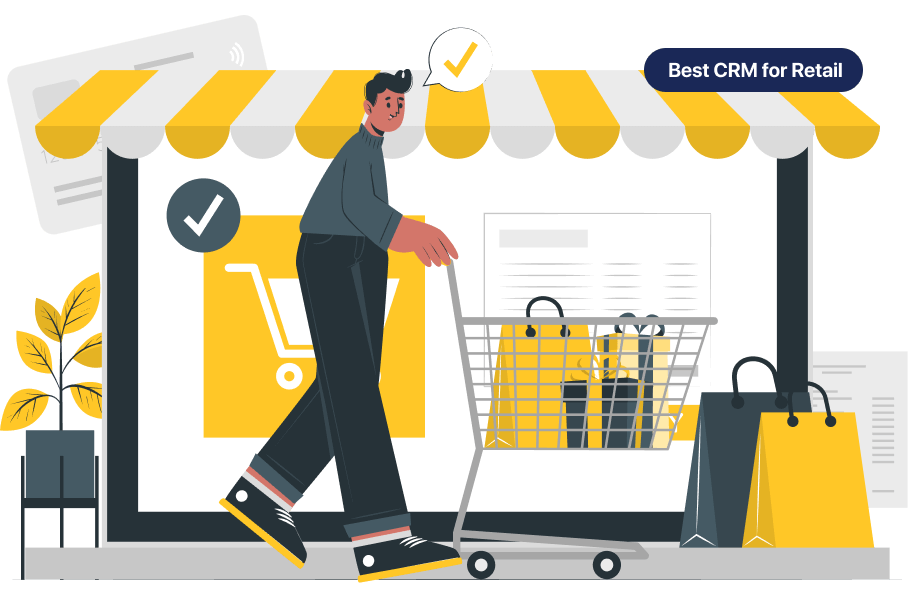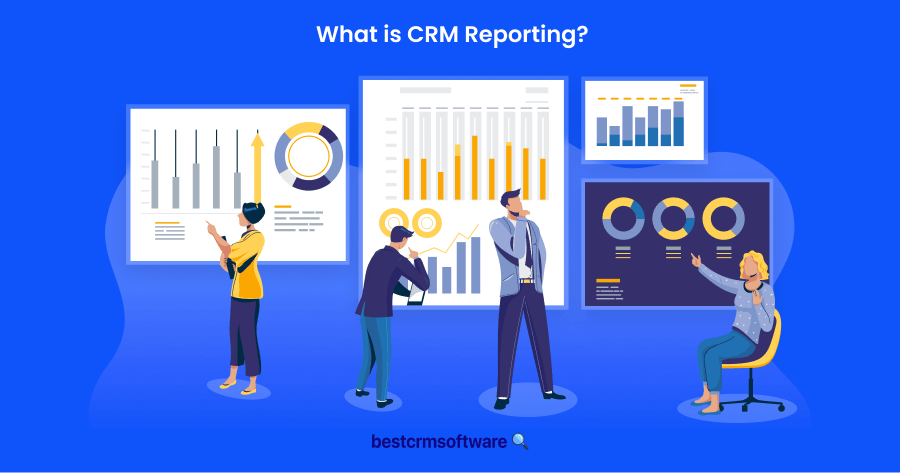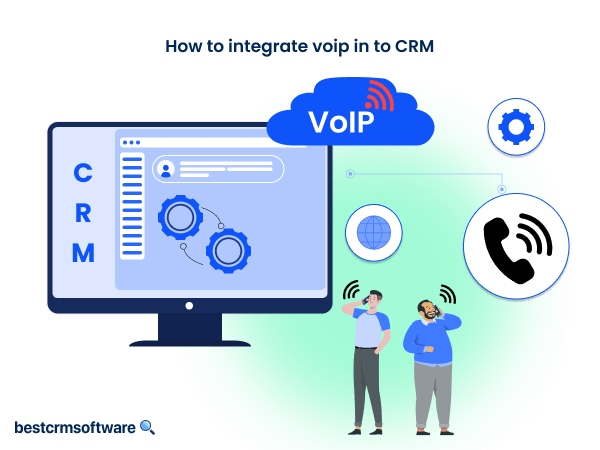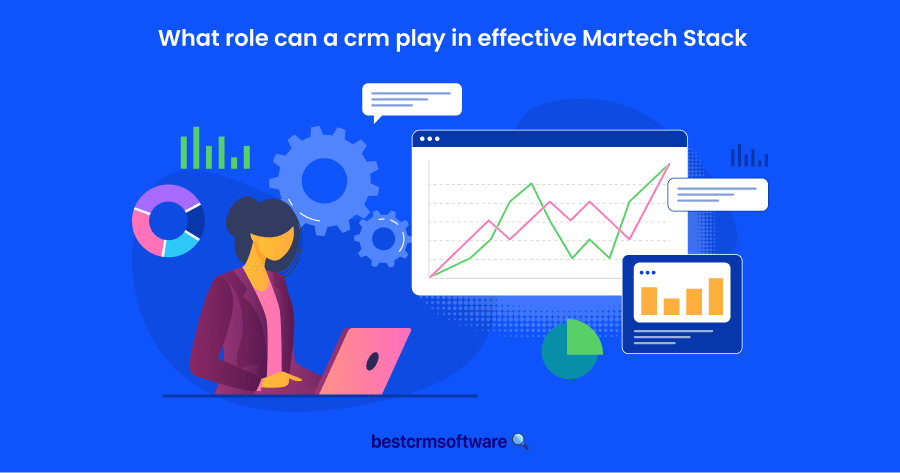
Best CRM Software for Retail
In a Nutshell
I’ve been looking for CRM software for retail stores to assist with streamlining our customer processes. My research has shown that Customer Relationship Management (CRM) is critical for our business.
Reading customer reviews, it’s clear that it’s increasingly playing a pivotal role in their success. As retailers, this CRM retail software empowers us to create better customer experiences, optimize processes, and drive growth in an ever-evolving and competitive global retail landscape.
Our Shortlist of the Top 10 CRM Software Systems for Retail
Here are my top five picks for the best CRM for retail. Each one has particular strengths, so it depends on your business requirements as to which one is best for you.
- Zoho CRM: Best CRM for retailers for overall features and value.
- Salesforce: Best retail CRM system for reporting and analytics.
- Shopify Plus: Best CRM for retail business in omnichannel marketing.
- ActiveCampaign: Best for managing and tracking specific email campaigns.
- ClickUp: Best for remote work teams.
- HubSpot: One of the best CRM options for small retailers.
- Apptivo: A comprehensive business app suite that covers many organizational areas.
- Bitrix24: An all-in-one solution for sales and team management.
- SugarCRM: Competes with many market leaders, offering powerful CRM tools.
- Vtiger: Ideal for retail, featuring sales pipeline management and collaboration tools.
Why (Online) Retailers Need CRM Software
The online retail industry is undergoing rapid transformations driven by technological advancements, shifting consumer behavior, and market dynamics.
Challenges Faced by Online Retailers
At the top of the list is diminishing customer loyalty. Brand loyalty continues to decline as consumer behavior changes under the influence of social media. Shipping expectations impact consumer loyalty, making it tough to retain customers.
Another major challenge is technology and performance-related issues. These include slow website loading, complex payment methodologies, the inability to scale their websites effectively, and the inability to transition between large-screen and mobile environments effectively. These issues lead to cart abandonment, affecting overall revenue.
Opportunities Worth Grabbing
The major opportunity facing the online environment is the ability to provide a unified shopping experience by seamlessly integrating the high street store, mobile apps, and desktop website. This will require investment in advanced technology such as AR and VR and AI-driven personalization.
Personalization in all its forms is a major opportunity. To drive growth, concentrate on strategic investment in technology and customer-centric processes.
The Top 10 Best CRMs That Grabbed My Attention for Retail

Why we like it
We loved Zoho CRM for its robust features for customer management, inventory control, loyalty programs, and seamless e-commerce integration. Its flexibility and automation capabilities made it a valuable tool for businesses of all sizes.
The most important Retail features
The free plan makes it invaluable for entry-level businesses; even the free plans allow connection to a range of Zoho apps. The pricing plans make it affordable as the company grows, and more integration is needed.
We enjoyed the integration with popular software packages such as QuickBooks and Google Analytics. Zoho’s mobile app (both Android and iOS) takes all your data on the road for quick access. Lastly, the user interface is clean and intuitive, making learning easy.
Pros
- Free plan availability
- Affordable pricing
- Mobile app
- A complete view of client profiles and activity
- Omnichannel customer engagement
- Superb AI-powered tools simplify many queries
Cons
- AI features are only available on top-tier plans
- Limited custom fields
- No integrations for the free plan
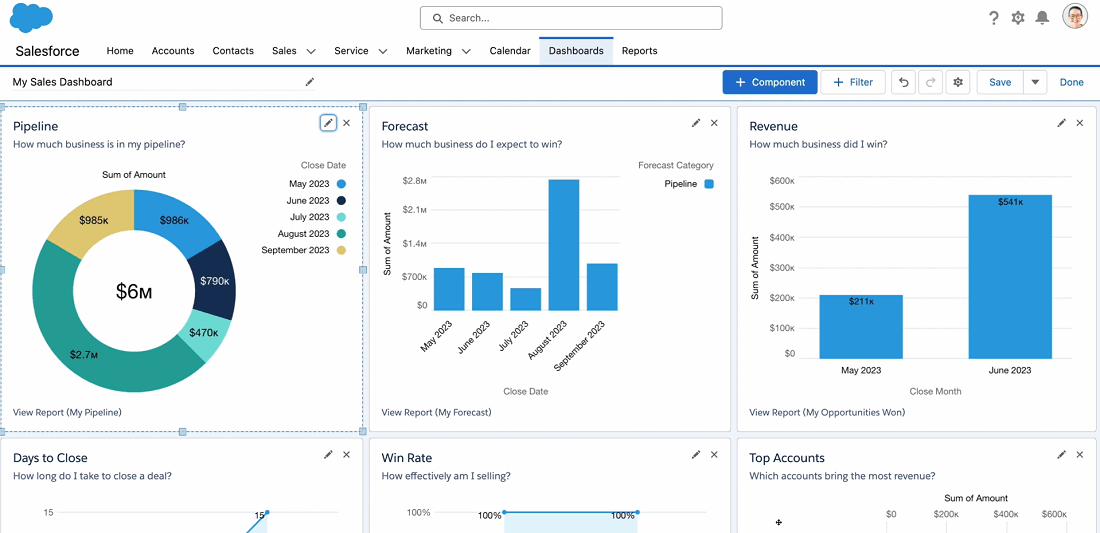
Why we like it
We found that Salesforce CRM is a powerful and versatile platform with many integration possibilities and compelling features, but these come at a cost. It has a reputation for being the industry leader and is the choice of many big international corporations. It required considerable time and human resources to set up, but this software makes sense for a big corporation. Small businesses will find more simple platforms that also do an outstanding job.
Most Important Retail Features
Salesforce offers robust customization so that you can tailor this platform to your unique needs and adapt it to your business processes. We found it excels in managing leads and its scoring capability helps to prioritize leads based on their potential value to the organization. We also found the analytics and reporting exceptional, with a fantastic range of reporting tools. It’s clear why this software is considered an industry leader with its automation, integration and flexibility.
Pros
- Extensive customization features
- Superb lead management and lead scoring capability
- Excellent support in higher-priced plans
- Free 30-day trial
- Enormous integration options
Cons
- No free plan
- Initial setup can be complicated and time-consuming
- Software licenses can become expensive with each integration choice
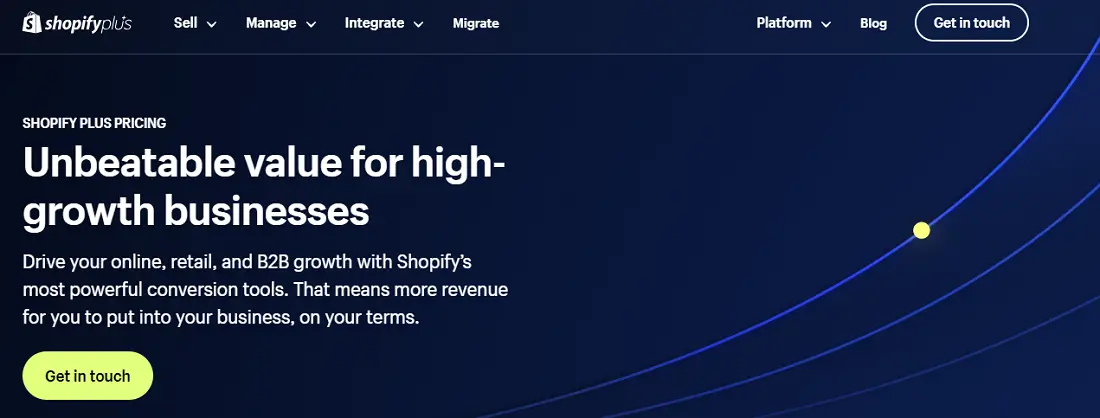
Why we like it
Shopify Plus combines power, flexibility, and reliability for top-level success. We found that it didn’t matter whether your business was a mom-and-pop or a global enterprise. This is one of the best CRM for online retailer stores.
It would greatly benefit your organization if you have a large sales volume and want to market and access multiple platforms. We loved that this software covers all the major retail functions, such as orders, inventory, and marketing while providing benefits such as custom catalogs and tiered pricing.
Most Important Retail Features
It’s superbly scalable and highly customizable. It makes reaching customers across any channel simple, from high-street stores to online shops, social media, and online marketplaces. We can automate any process and reduce manual work, giving employees more time to focus on meeting customer needs. We also loved how easy it was to create targeted advertising campaigns and flash sales to boost revenue.
Pros
- Fantastically scalable
- Aimed at high volumes irrespective of the enterprise size
- Multi-channel selling
- Automation of e-commerce processes is simple
Cons
- Cost – this software is more expensive than many other CRM solutions
- Complexity – this is an enterprise solution, so it needs technical expertise to assist in the setup
- Some customization limits exist due to the structure of the product

Why we like it
ActiveCampaign is an all-in-one marketing tool that’s invaluable for organizations. With it, you can set up sales pipelines, assign tasks to staff members, manage sales leads and customers, and create customized and targeted campaigns. It has CRM attributes but needs to catch up on inventory and stock control.
However, it’s unbeatable for finding, nurturing, and teaching your contacts. If you have a large contact base and use email and other social tools for marketing, this tool is ideal for managing those leads. Plus, it analyzes and reports on the effectiveness of campaigns.
Most Important Retail Features
We found ActiveCampaign contains a host of sales and marketing tools that make managing campaigns a straightforward process. It can create landing pages and forms and save potential leads from those features.
These CRM features can take those sales leads, assign them to staff members, and manage them through targeted email campaigns and other marketing tools. Users can automate any of these processes. It can include scoring lists, managing contacts, and tracking your sales pipelines.
Pros
- Unlimited email messages
- Advanced automation features for customer-personalized communication
- High-level analytics and reporting
- Omnichannel marketing is possible
Cons
- No free plans are available
- Templates are simple but customizable
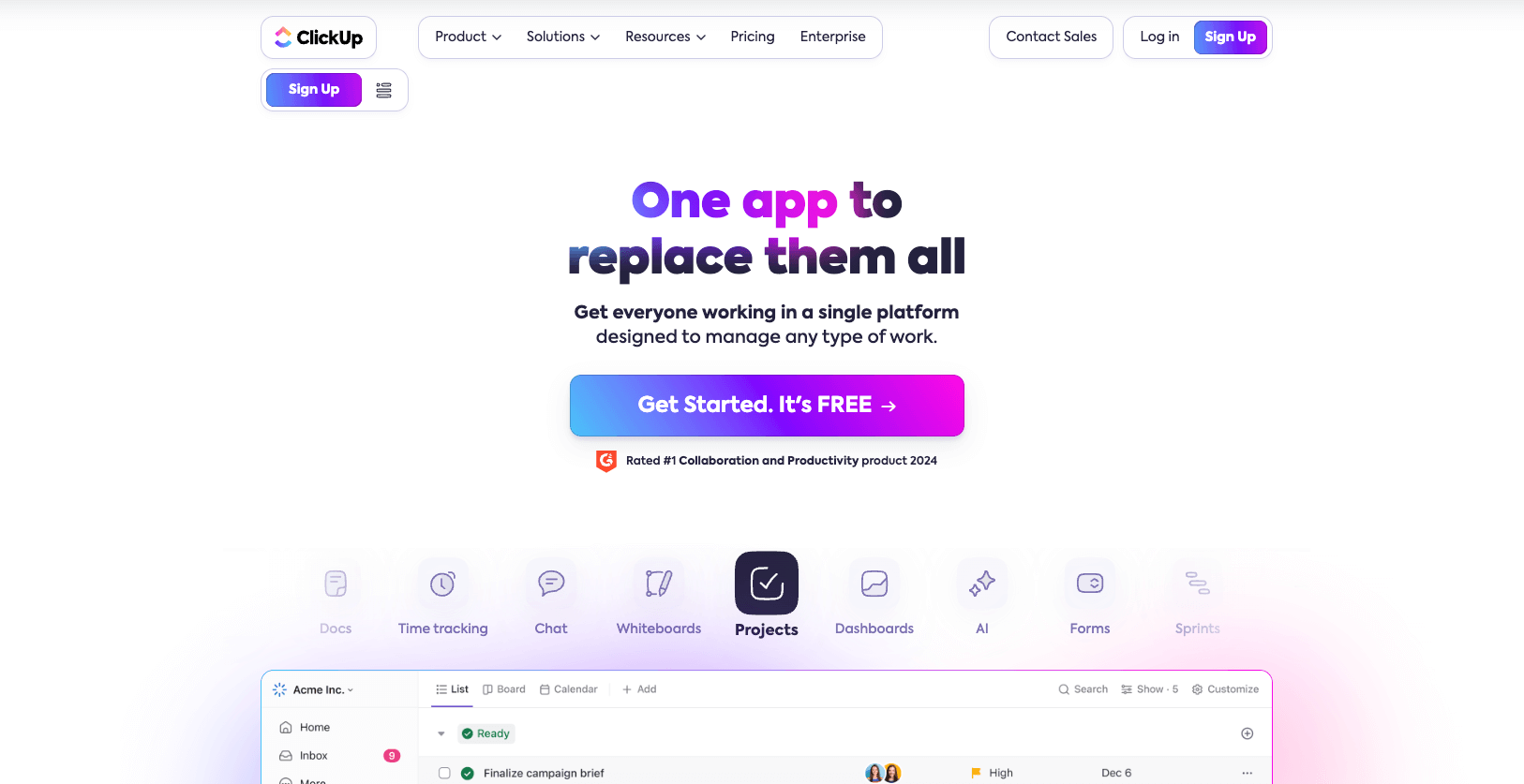
Why we like it
We liked ClickUp’s ease of managing remote teams, especially for projects spanning large geographical areas. Projects such as launching a new product or running a specific marketing campaign are more effectively planned and run using a project management tool.
We also liked ClickUp’s great integrated inventory management template. This product tracks inventory availability and levels as part of the project management. We also found that staff could see their workload in many different forms.
Most Important Retail Features
ClickUp is very attractive to the retail market when specific projects are underway. It makes running teams that are geographically dispersed a simple task. The inventory management and project management features make it easier to tailor workflow to your environment. So, all potential leads are followed up and reported on.
While the project is underway, you can draw many reports showing progress and other important details. This ensures your product launch or other projects stay on track and within budget and bring in the desired sales.
Pros
- Great project management tools
- Fantastic reporting features
- Inventory integration
Cons
- It can have a steep learning curve with all the features
- Lacks a project message board
- No telephonic support
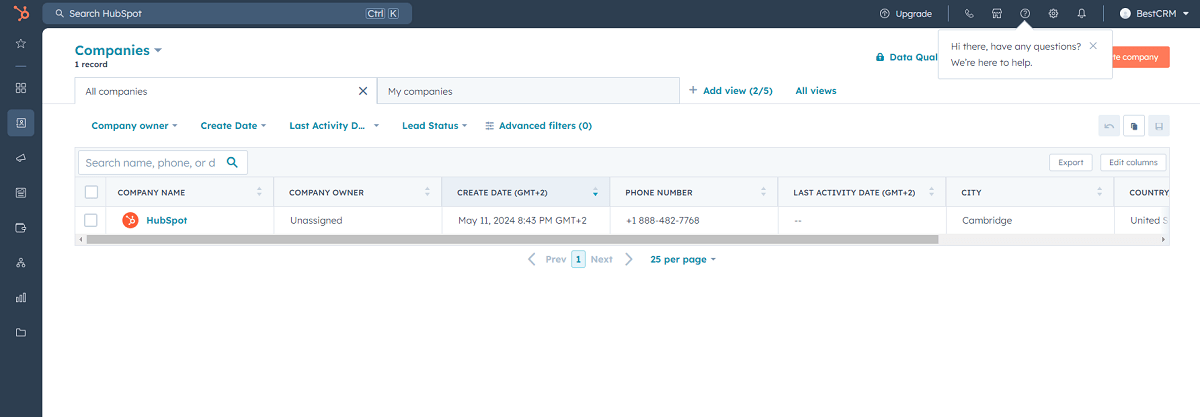
Why we like it
We found HubSpot to be one of the best CRM options for small retail. You can start with the free option and gradually move into paid plans as you expand and bring more staff on board. This software is great for bringing many spheres of business under one umbrella.
HubSpot integrates with many other packages. So, you can pick the cream of the crop for many applications and run them seamlessly from HubSpot. The new advanced AI tool is fantastic for summarizing client conversations, drawing reports, and managing analytics.
Most Important Retail Features
HubSpot excels at tracking and nurturing sales leads and analyzing business metrics. Its features include sales automation, pipeline management, email creation, tracking and analysis, contact management, and inbound and outbound marketing. The visual dashboards were fantastic for ensuring you get back to your customer in minutes, not hours or days.
Pros
- The core CRM software can be used for free
- Personalized email shots are easy to create
- Dashboards keep customer interactions up-to-date and accessible to all
- Extensive catalog of integration packages
Cons
- Free plans have limitations on emails
- Per User, plans can be expensive for small to medium businesses
- Limited customization

Why we like it
We loved Apptivo for its comprehensive business app suite, which covers many organizational areas. We found great CRM management, marketing, order management, quotes and billing, and procurement and supply chain features. All of these factors play an important part in any business.
Most Important Retail Features
Apptivo covers all the most important CRM aspects with solid features. Regarding CRM, we found Apptivo to be solid in managing customer interactions, contacts management, and sales pipelines.
We could create customized emails, segment customers, and track what was working and what wasn’t. A nice feature was the Help Desk, where customer queries could be logged and quickly assigned to staff for follow-up. Also useful was the vendor and inventory management, order tracking, and shipment information.
Pros
- This software is very affordable, with a single price for the entire suite
- Flexibility – Apptivo has a rich array of features that can be customized
Cons
- While many integration options exist, they’re less varied than its competitors
- Advanced features need dedicated staff and have a steep learning curve
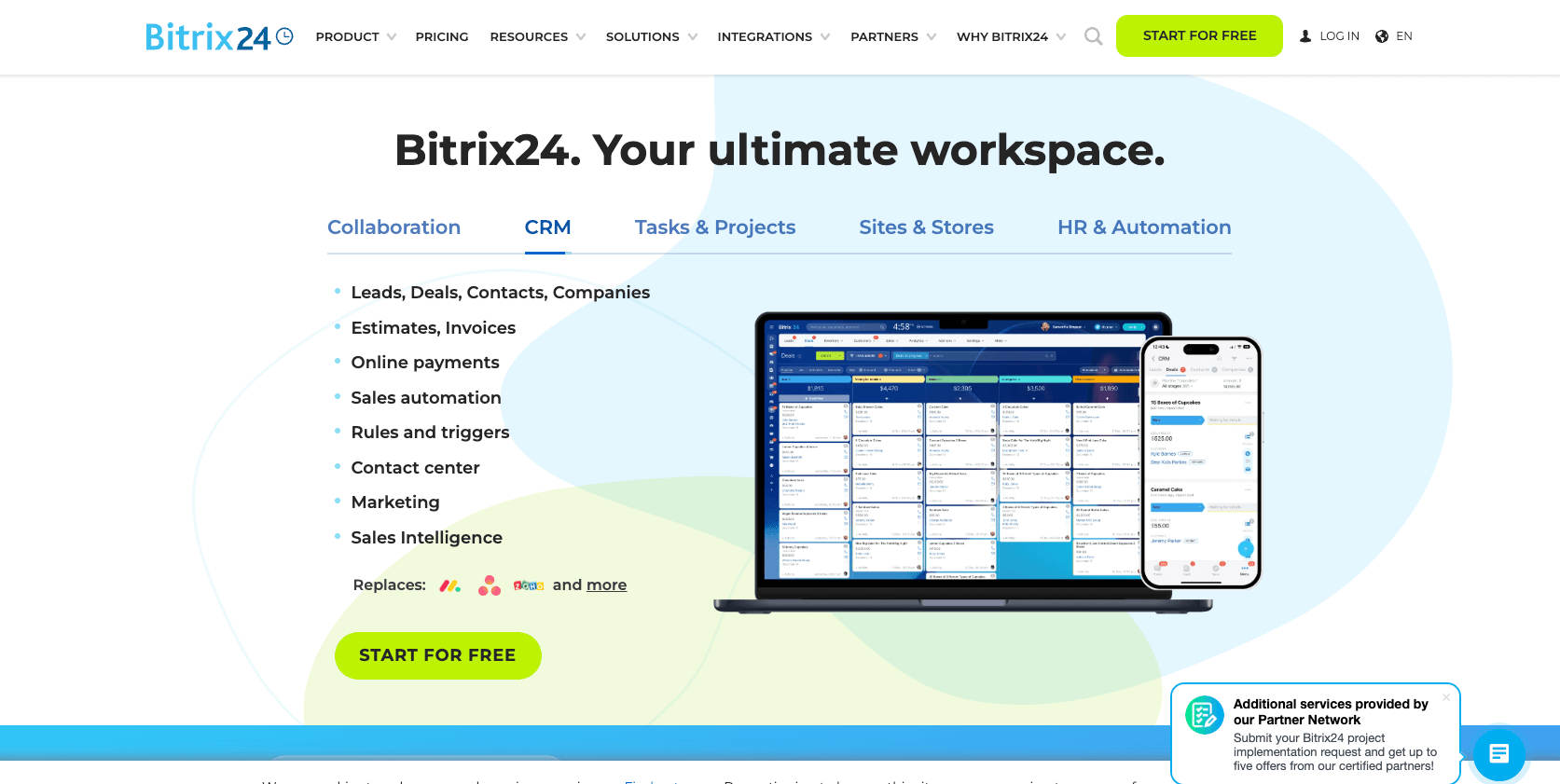
Why we like it
Bitrix has the largest customer base, and we found a lot to like. However, getting up and running is difficult! Bitrix24 is an all-in-one solution for sales and team management. This very versatile and capable CRM tool goes way beyond generating leads. It covers all the CRM functionality and allows you to build a website and collaborate across teams on all platforms, including mobile devices.
Most Important Retail Features
Bitrix24 covers all the most important retail functions, such as websites, sales pipeline management, project management, document management, and integrated communication. It can also integrate with other packages. So it’s easy to incorporate features such as inventory and stock management.
Pros
- A free plan allows up to 5GB of storage
- Fantastic CRM tools
- Easy integration with other packages
- Advanced email and marketing features
Cons
- This software has a steep learning curve
- It needs an investment in staff training
- Paid packages can be expensive

Why we like it
We found that SugarCRM is strong enough to go head-to-head with many of the market leaders in CRM software. Using this sweet toolkit, we could build an enterprise-wide system for various aspects. These include organizing contacts, managing sales leads, and creating a solid customer support environment. While there was no free plan, the pricing was competitive.
Most Important Retail Features
SugarCRM has a premier set of customer service tools at its core. It has detailed data profiles for contacts and accounts. Plus, our sales pipeline is visible. Using the latest AI tools, we could draw information and learn about our customers in ways we hadn’t before. The mobile application was also very beneficial and easy to use.
Pros
- A powerful suite of tools to support customer relationships
- Competitively priced
- AI-driven analytics and report generation
Cons
- No free option
- There’s a steep learning curve, but it’s powerful once in place
- You may need technical staff to support this
- Integration tools are available but can be complex to use

Why we like it
We loved Vtiger’s process designer. Laying out a process using the drag-and-drop features was effortless. Then, there’s a comprehensive customer resource management tool fully integrated with inventory, vendor, and billing management. This is a great all-around tool for managing customer relationships.
Most Important Retail Features
The process development tool was impressive and easy to use. We found that this tool, along with sales pipeline management and inventory management, was invaluable for our retail space. The collaboration features also helped us blend teams and improve internal communications.
Pros
- Unlimited projects on the free platform
- Customizable reports
- Great collaboration features
- An excellent streamlined sales lead assignment process
Cons
- No free plan
- It has a steep learning curve, and mastering the advanced functions will take time
- The integration process can be complicated, but Vtiger’s support staff are there to help
Remember that the best retail CRM solutions depend on your needs and use case. Evaluate these options based on your business requirements and choose the one that aligns with your goals and budget.
CRM Solutions for Omnichannel Retailers
Traditional retail approaches tend to compartmentalize interactions—whether through a website, a physical store, or targeted marketing efforts. However, customers perceive these touchpoints as part of a cohesive whole. Whether exploring your online store, reading product reviews on social media, or stepping into your physical store, they view these encounters as one brand experience.
As retailers, it’s crucial to realign our strategies around this customer-centric perspective. Unlike multichannel marketing, where channels operate in silos, omnichannel retail ensures continued interactions at every touchpoint.
In summary, omnichannel integration features empower retailers to provide a cohesive, personalized experience, boost engagement, and drive conversions. They’re no longer a luxury but a necessity in today’s competitive retail landscape.
Considerations for Small Businesses vs. Large Businesses
When looking for a CRM for retail industry, there are distinct differences between the needs of small and large organizations. Let’s have a look at some of these specific needs below.
Small Businesses
- Budget Constraints: Small businesses often operate with limited budgets. Their CRM solutions must be cost-effective and provide value without breaking the bank.
- Ease of Implementation: Small enterprises typically lack dedicated IT staff. Therefore, they require user-friendly CRM systems that can be set up quickly and with minimal training.
- Scalability: These businesses aim to grow while starting small. Their CRM should be scalable, allowing them to add features and users as needed.
Large Organizations
- Complex Sales Processes: Large enterprises deal with intricate sales cycles involving multiple stakeholders.
- Customization and Flexibility: These businesses require highly customizable CRM solutions to align with their unique processes.
- Integration with Existing Systems: Large enterprises often have legacy systems. Their CRM should seamlessly integrate with these systems, databases, and applications.
- Employee Tracking and Collaboration: Managing a large workforce demands features like user permissions, role-based access, and collaboration tools within the CRM.
Conclusion
CRM is vital for any retail establishment, regardless of its size. The best approach is to manage your entire retail sales environment, emphasizing finding and retaining your customers. Automating tasks and collaboration will give your staff time to focus on the customer’s needs. So invest wisely from the start and implement the right CRM for your retail business.
-
1) What is the best CRM for retail business?The answer to this question depends entirely on your business’s needs. When selecting a CRM for your retail business, assess your needs and consider factors like scalability, ease of use, and integration capabilities.
-
2) Do retail stores use CRM?Yes, retail stores use CRM systems. These tools help them manage customer interactions, streamline sales processes, and enhance overall customer experiences.
-
3) What is meant by CRM in retail?CRM, in retail, refers to a comprehensive system designed to manage and nurture customer relationships throughout their buying journey.
-
4) Can I use a CRM to track orders in a retail business?Yes, CRM software does have the tools to allow businesses to track orders.

